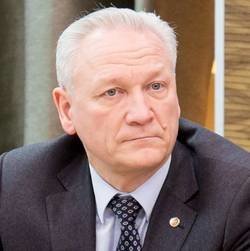‘It was also said in the spring of 2020 we would close for a while’: businesses getting ready for non-working days
Tatarstan is going to enter the mode of restrictions from 30 October: affected businesses are promised one-time grants for salaries and preferential loans to pay taxes
The federal authorities have prepared support measures for businesses during the partial lockdown that has been announced across the country — from 30 October to 7 November. On 20 October, Russian First Vice Premier Andrey Belousov said that from 15 November SMEs will start to be paid one-time grants equal to the minimum wage per worker, or 12,800 rubles (this is the minimum wage in the Republic of Tatarstan), and preferential loans after the restrictions end to pay the rent and taxes. Tatarstan public catering is confused at the moment. “If there are zero-interest loans for salaries, it is certainly a plus. And if it is a loan, it is an additional loan on businesses,” thinks head of the Association of Restaurateurs and Hoteliers Galina Sharafutdinova. But they are mostly afraid that the lockdown might last for more than a week or two. Read more in Realnoe Vremya’s report.
“Daily sales will fall by 25-35%,” or how much the lockdown 2.0 will cost
It became known on 20 October evening that the lockdown in Tatarstan would start as well as across the country on 30 October, not on 23 October as it had been assumed. Tatarstan President Rustam Minnikhanov made such a decision after a report of the republican task force on the epidemiological situation. Enterprises and non-stop basic operating organisations, state and municipal power agencies, Multi-Functional Centres, educational institutions would continue working after the declaration of non-working days from 30 October to 7 November.
The operation of these establishments must be organised “strictly according to sanitary and epidemiological requirements.” Rustam Minnikhanov set the task of continuing actively working to speed up the vaccination rate, which directly influences making a decision on the non-working days.
The introduction of the second lockdown with the temporary closure of most public catering establishments, services and entertainment threatens to lead to financial losses. On 20 October, the federal authorities announced the first decisions made to support businesses, first of all, small and mid-sized companies. The Russian government considers enterprises working in culture, sport, public catering, utilities and the hotel industry as affected sectors. By the government’s estimates, their revenue will fall by 25-30% during the forced shutdown, but the number can be higher in some regions and sectors.
The full scale of economic losses from the upcoming lockdown was announced by Russia’s First Vice Premier Andrey Belousov at a meeting with President Vladimir Putin with members of the Russian government via teleconference.
“As we think, today there are quite accurate estimates of a reduction in turnovers and revenues of enterprises that are receiving the main blow,” he said and indicated that they had rested on “the experience of the introduction of restrictive measures in some regions, including the introduction of QR codes, in Moscow too.”
“In general, this fall is 25-30% if we are talking about the decline in daily sales a day,” he evaluated the losses of businesses but with a proviso that “they are bigger in some sectors and some regions. “Let’s say, in Moscow, the average daily fall during the introduction of QR codes in public catering was nearly 35%,” he added.
Economic theorist Belousov calculated the definite number of daily losses for businesses across the country.
“If this data is spread across the country, the losses are estimated at about 4 billion rubles a day,” he calculated.
Interestingly, when analysing financial losses, the government considered that the lockdown might last not one but two weeks. At least, such an option of the duration of the lockdown was pronounced in the first Russian vice premier’s speech: “If the pause is two weeks, two weeks of non-working days are about 60 billion rubles.”
He added that this doesn’t include possible losses “in non-food commerce.”
“We don’t yet assume introducing any special additional measures there,” Belousov calmed the sector down.
November salary in line with the minimum wage
To prevent mass layoffs in the affected sectors and help them recover after the restrictions are cancelled, the Russian government prepared two instruments of support. Firstly, it is an emergency aid in the form of one-time grants to pay salaries to workers equal to the minimum wage. In Tatarstan, it is 12,800 rubles.
According to Vice Premier Andrey Belousov, the one-time grants will be given to SMEs “like we did last spring.” In other words, one-time grants the size of the minimum wage per worker will be paid. Seemingly, it will be again zero-interest loans if 100% employment of workers is provided. According to his evaluations, about 27 billion rubles will be necessary for this. The money will cover some 2 million rubles.
“This will cover approximately half of the lost revenue in the affected sectors,” Belousov said at President Vladimir Putin’s meeting with members of the Russian government.
Technically, the payment scheme of such grants was tested, Belousov assured the audience. It is offered to receive applications online via the Federal Tax Service. It will be from 1 November to 15 December, while the payouts will be provided from 15 November considering the holidays until 31 December.
“We cannot save the staff without zero-interest loans”
Executive Director of the Tatarstan Association of Restaurateurs and Hoteliers Galina Sharafutdinova claimed that enterprises could save the staff during the second lockdown only thanks to zero-interest loans.

According to her, grants terms are not yet known.
“When applications for grants are submitted, it is necessary to obtain scores, and requirements can be excessive,” she worries that not everybody is able to get through an audit. “But we anyway hope that the subsidisation programme with the minimum wage will be implemented like it was during the first lockdown. Then, we saved 100% of the workers, or 30,000 people in the sector,” she hopes.
However, the market players are more critical.
“Is the minimum wage per person is support? This won’t save,” co-owner of MrWillard, ReLab, Prometheus Artur Galaychuk believes. “Imagine, our minimum wage is around 12,000 rubles, while the employees’ salary is around 40,000-50,000 rubles. It falls short a bit. Where to get the other 28,000 if everything is closed. It will be possible to work for delivery because there is no sense in working for takeaway orders, everybody is staying home,” he says.
However, if the lockdown turns out not as long as it was like a year ago, the zero-interest loans can save the day.
“It is good that indeed zero-interest loans are introduced to save the staff like it was last year. They were written off in a year and a half or a year. We would like to have the same scheme as last year,” he said. In addition to this, he considers that “at least tax concessions” are necessary.
What he fears the most is that the lockdown will be extended.
“It was also said in the spring of 2020 that we would close for a while, for a week, and then would open. In the end, the country was in lockdown for 2,5 months. Now, I think, it won’t be a week.” He forecasts that in Tatarstan it will be at least two weeks and say that they could be limited to softer restrictive measures. “I think the government won’t have to do anything if those who don’t have QR codes stay home, while the rest can freely move. Then they will have nothing to worry about.”
The lockdown is posing a real threat to the activity of the industry, since it coincides with the last quarter of the year when industrial enterprises need to complete the execution of big contracts and public defence orders. Every day during this period is worth its weight in gold.

But if the lockdown cannot be avoided, the state must provide support of equal value.
“We are asking to save all the concessions that were in force during the lockdown, during the epidemic, especially to prolong loans. There are no miracles in the world. There is no result without work. And it is necessary to create conditions to have work,” he thinks.
Board Chairman of the Tatarstan Mechanical Engineering Cluster Sergey Mayorov is afraid that the economy will finally be hurt by the new lockdown:

“I think if we are closed, it will be good”
Owner of P.Love tea house Nurislam Sharifullin says that the revenue after the introduction of QR codes in Tatarstan fell by 90% first, then the percentage decreased to 70% and claimed:

Board Chairman of the Fund for Assistance to Admiral Shopping Mall Entrepreneurs Liliya Chernikova has another point of view. According to her, the non-working days “will simply kill the business.”
“Because they differ from days off. At the weekend, one can go for a walk in the park, go to the shopping mall. During the non-working days, you will be locked at home. The question is what the QR codes were made for. To lock us at home for two weeks? Now I cannot announce I am bankrupt and as the owner of three shopping malls that burnt I have such a huge financial burden. I am not coping with it anymore. I don’t know what to do. The new lockdown will simply kill the business. 90% will not stand up, they will close and declare they are bankrupts,” she complained.
President of the Tatarstan Association of Hoteliers Gulnara Safina called the decision not to announce non-working days in Tatarstan from 23 October, as many predicted, a well-thought-out and sensible.
